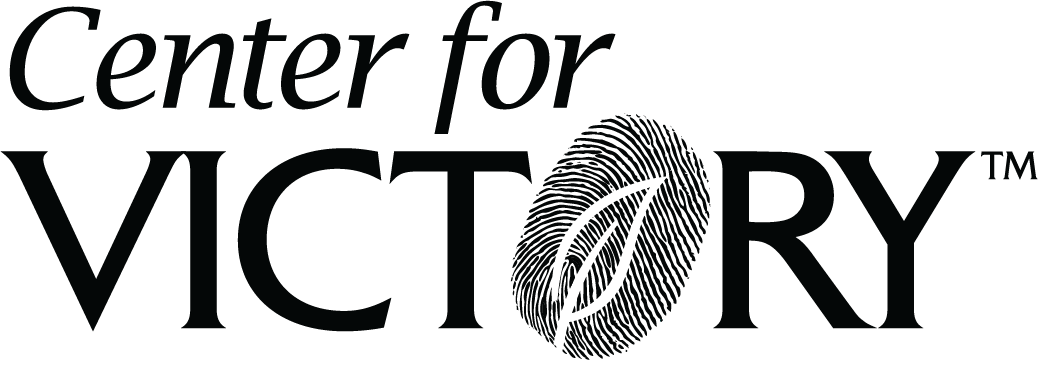Episode 128: Addressing Workplace Burnout
Learn to recognize burnout before you are in it.
In this week’s episode, Chief Victory Officer, Eric Guy, is joined by Christie Cawley, Senior Partner and Executive Consultant at Center for Victory. They discuss the important of understanding and addressing workplace burnout.
In today’s fast-paced and demanding work environment, burnout has become an all-too-common phenomenon. It’s essential to recognize that burnout isn’t just about being tired; it’s a vicious cycle of energy depletion where you find yourself with nothing left to give. As a result, it is crucial to understand the significance of avoiding workplace burnout and taking proactive steps to prevent it from taking hold.
One of the root causes of burnout is unrealized expectations and illogical guilt. You may set high standards for yourself and feel a sense of obligation to meet them, even if it means sacrificing your well-being. However, it’s important to remember that just because you can do something doesn’t mean you should do it. Prioritizing self-care and setting realistic boundaries is crucial for maintaining your mental and physical health.
In a team setting, it’s important to recognize that each person handles responsibilities differently, bringing forth unique talents and capabilities. Embrace the diversity within your team and encourage individuals to leverage their strengths. By distributing tasks according to individual strengths, you not only lighten the load for everyone but also create an environment that fosters collaboration and personal growth.
To prevent burnout, cultivating healthy habits is essential. It starts with ensuring you get the right amount of sleep and exercise. Sleep is the foundation of well-being, allowing your body and mind to recharge and rejuvenate. Exercise, on the other hand, promotes physical fitness and releases endorphins, which can significantly reduce stress levels. Incorporating these practices into your daily routine will help reduce the risk of burnout and increase your overall resilience.
As a leader, it’s crucial to endorse and support your employees to be at their best, even if that means blocking out time for rest. Encourage breaks throughout the workday and promote a culture that values work-life balance. Provide resources and support for employees to engage in activities outside of work that bring them joy and fulfillment. By nurturing a healthy work environment, you not only enhance productivity but also foster employee loyalty and well-being.
Creating a list of the things in your life that are causing you stress can be a powerful exercise. Identifying these stressors allows you to find effective coping mechanisms and implement strategies to manage them. Whether it’s time management, communication challenges, or overwhelming workloads, addressing these issues head-on will help you regain control and prevent burnout.
Acknowledge your stress levels on a stress meter. Be honest with yourself and others about what you can reasonably handle. By setting realistic expectations and communicating your limitations, you can avoid taking on too much and ensure that your workload remains manageable. This approach not only protects your well-being but also promotes open communication within your team, fostering a supportive and understanding work environment.
Lastly, it’s crucial to recognize that your employees need to have purpose in what they are doing. When individuals feel a sense of meaning and fulfillment in their work, they are more likely to stay motivated and engaged. Foster an environment where employees can connect with the larger purpose behind their tasks and projects. Encourage open dialogue about their aspirations and provide opportunities for growth and development. By helping employees find purpose in their work, you create a positive and energized workplace that minimizes the risk of burnout.
In conclusion, avoiding workplace burnout is of paramount importance. By understanding the cycle of energy depletion, managing expectations, and embracing healthy habits, you can safeguard your well-being and that of your team. Endorse a culture of self-care, open communication, and purpose-driven work. Remember, preventing burnout is not only beneficial for individuals’ mental and physical health but also for the overall success and longevity of the organization.
Key Takeaways:
– Burnout isn’t just about being tired. It’s a cycle of a depletion of energy, where you have nothing left to give.
– Burnout can result from unrealized expectations and illogical guilt if left unchecked.
– Just because you can do something, doesn’t mean you should do it.
– Each person on your team will handle responsibilities differently, in a way unleashes unique talents and capabilities.
– Healthy habits, including the right amount of sleep and exercise, will reduce the risk of burnout.
– Endorse and support your employees to be at their best, even if that means blocking out time for rest.
– Create a list of the things in your life that are causing you stress, so that you can find a way to cope with them.
– Acknowledge your stress levels on the stress meter, and be clear with yourself and others about what you can reasonably handle.
– Your employees need to have purpose in what they are doing.
Quotes:
– “Just because you can do something, doesn’t mean you should do it.”
– “Start with a healthy dose of self-awareness.”
– “Build it in, don’t bolt it on.”
– “We need to get comfortable being questioned.”
Make this your BEST DAY YET! Learn more at resources.CenterForVictory.com.
Search Podcasts
Recent Episodes
Subscribe!
Thanks for subscribing! Please check your email for further instructions.
